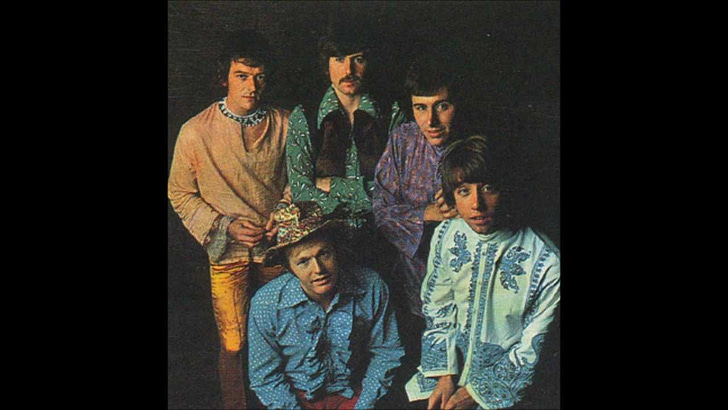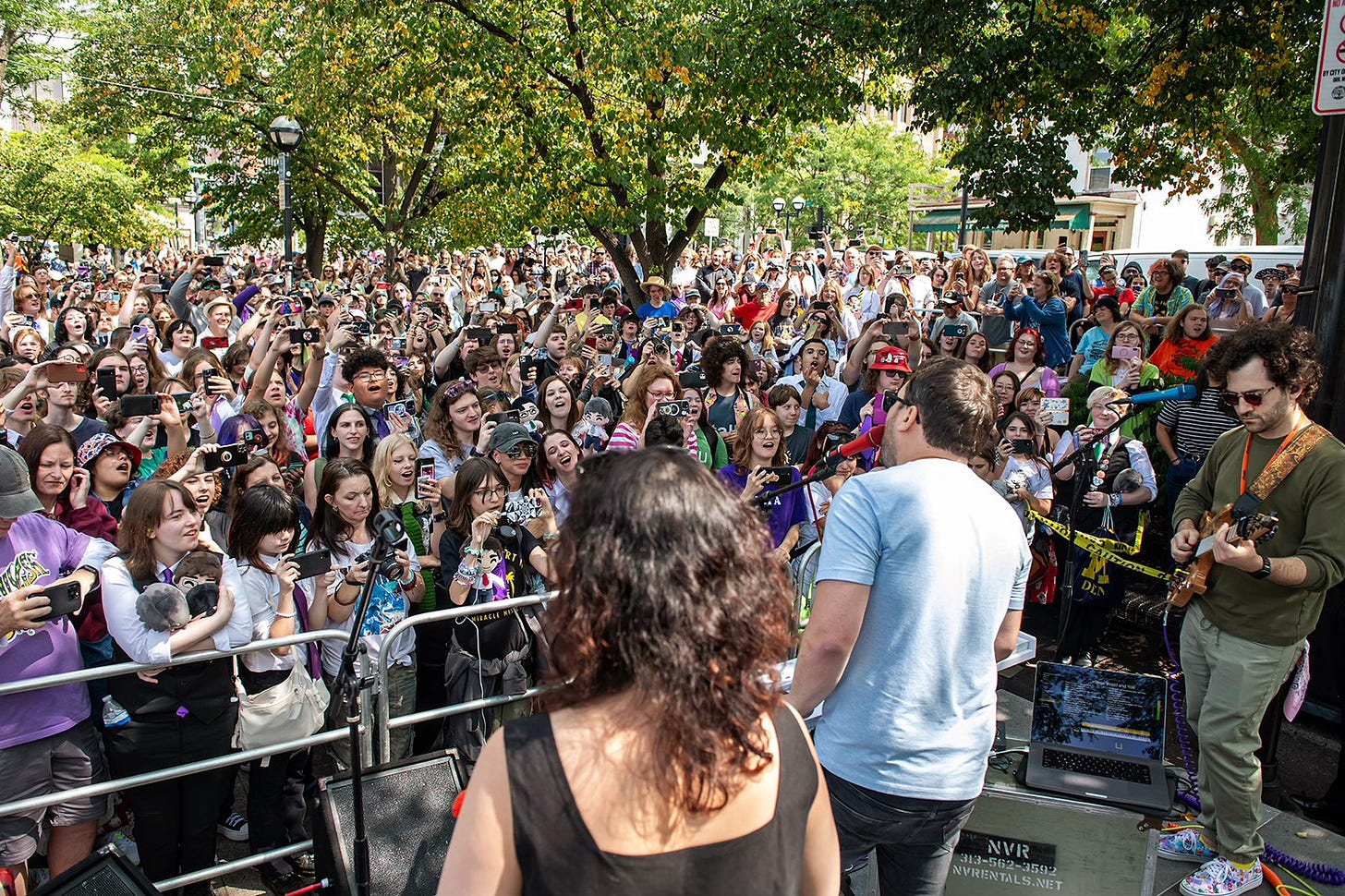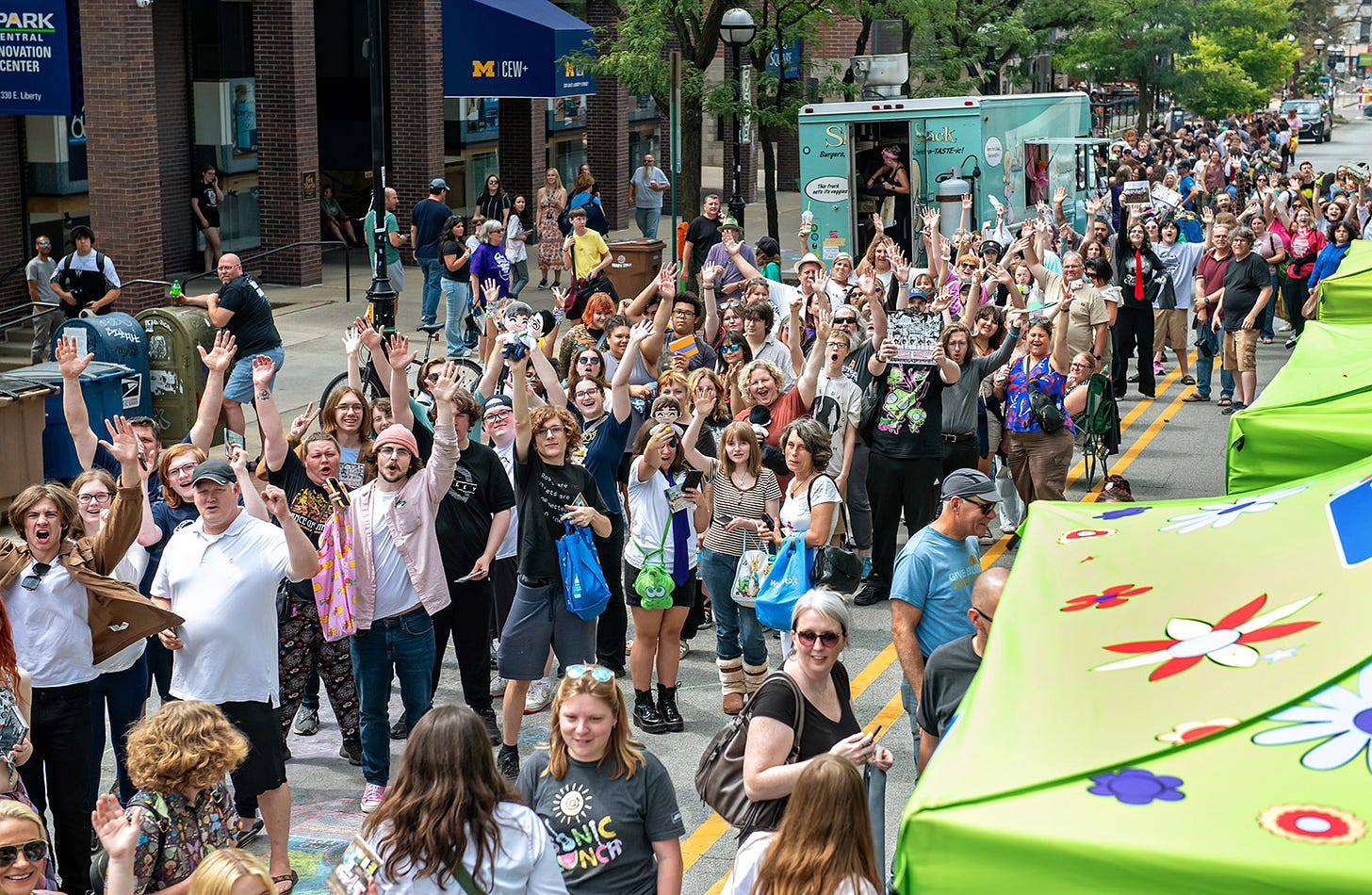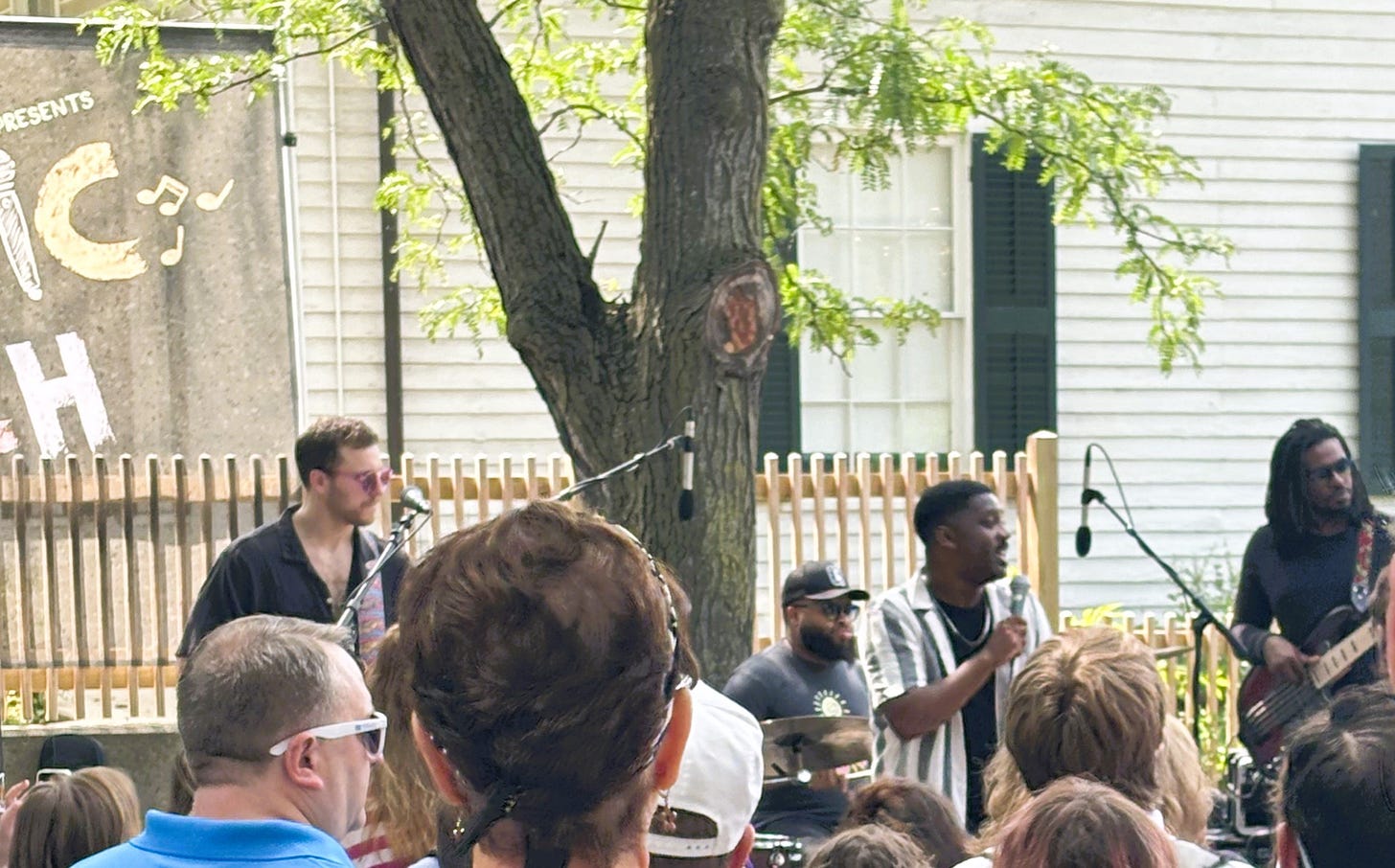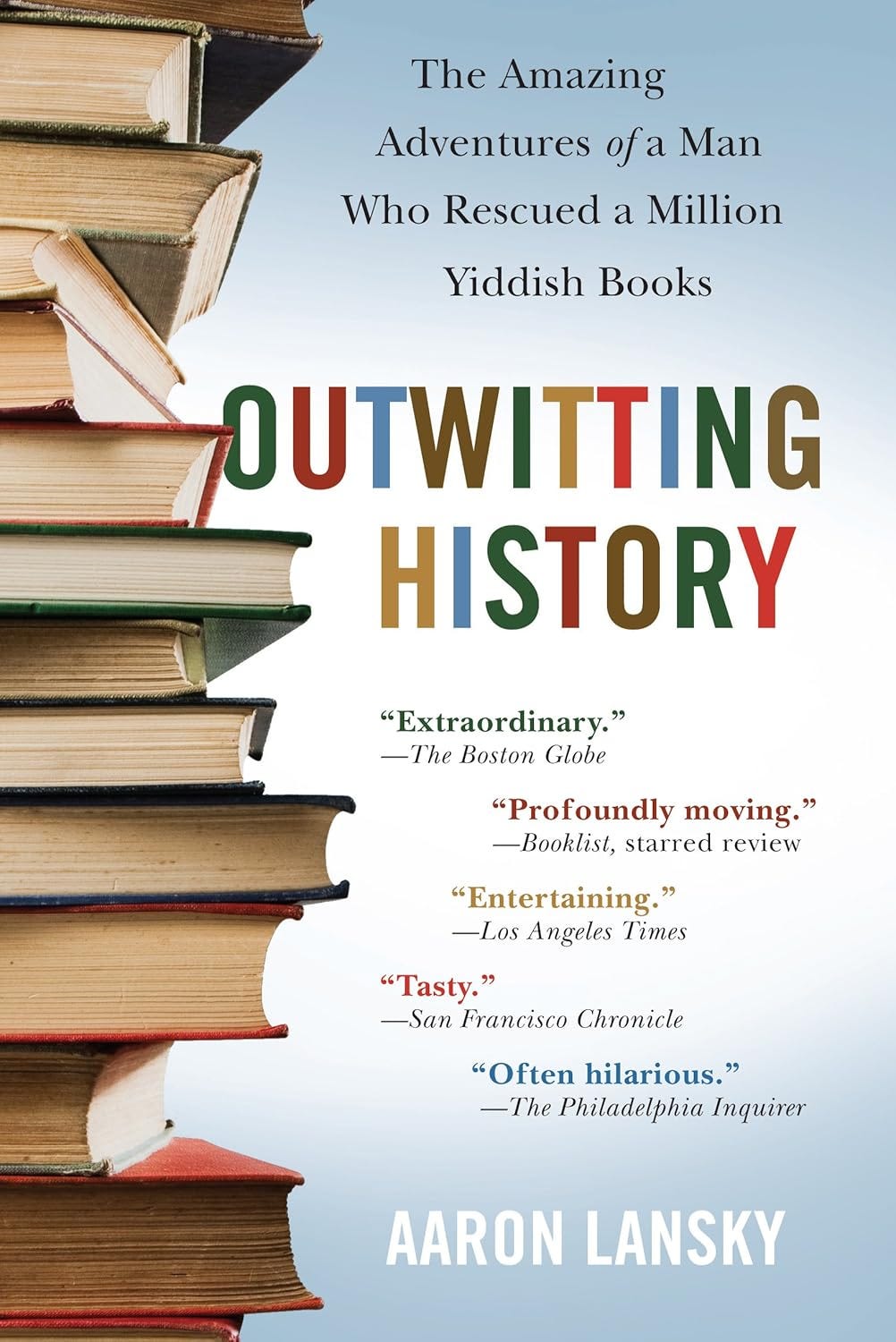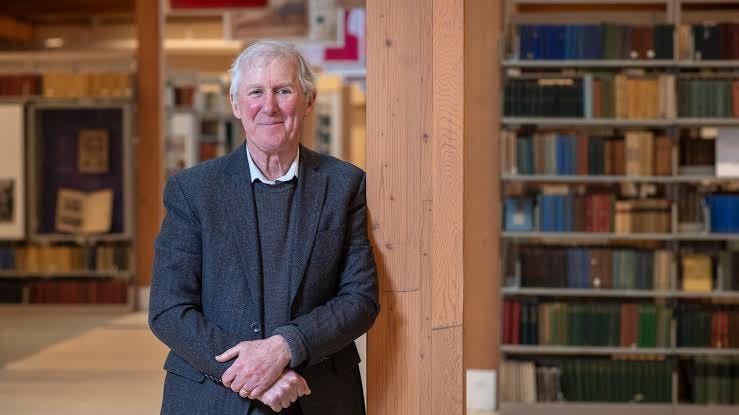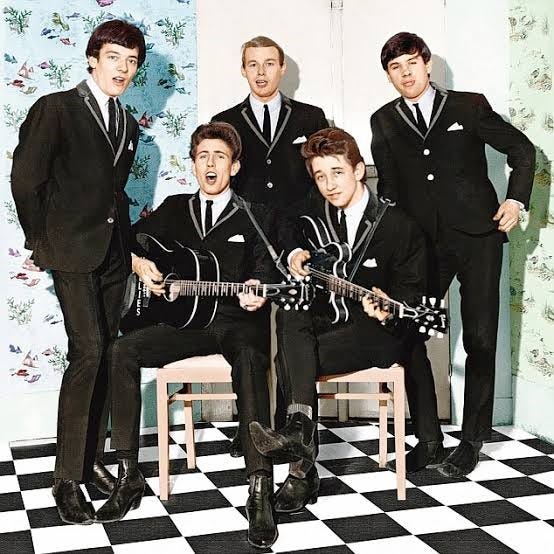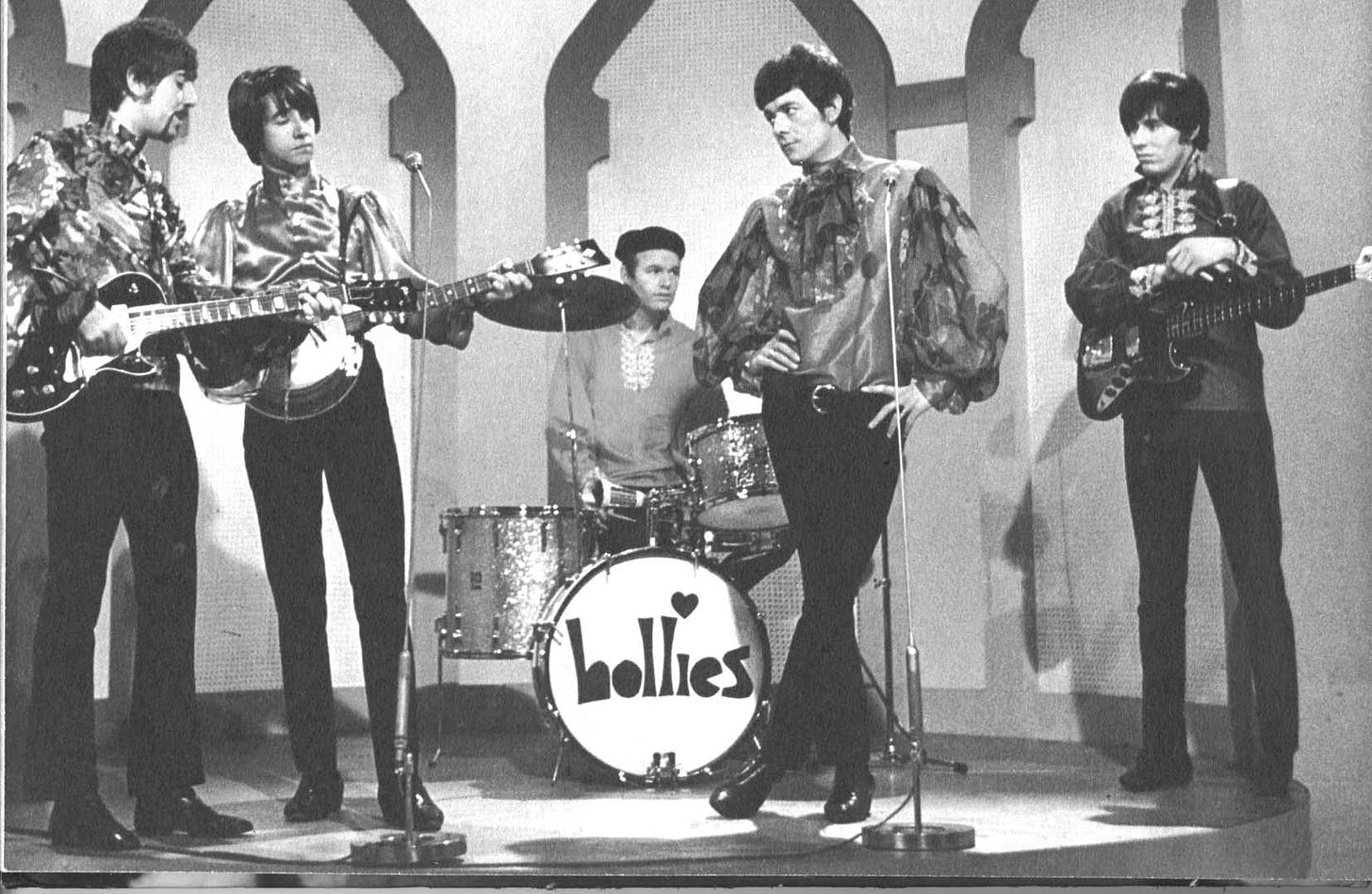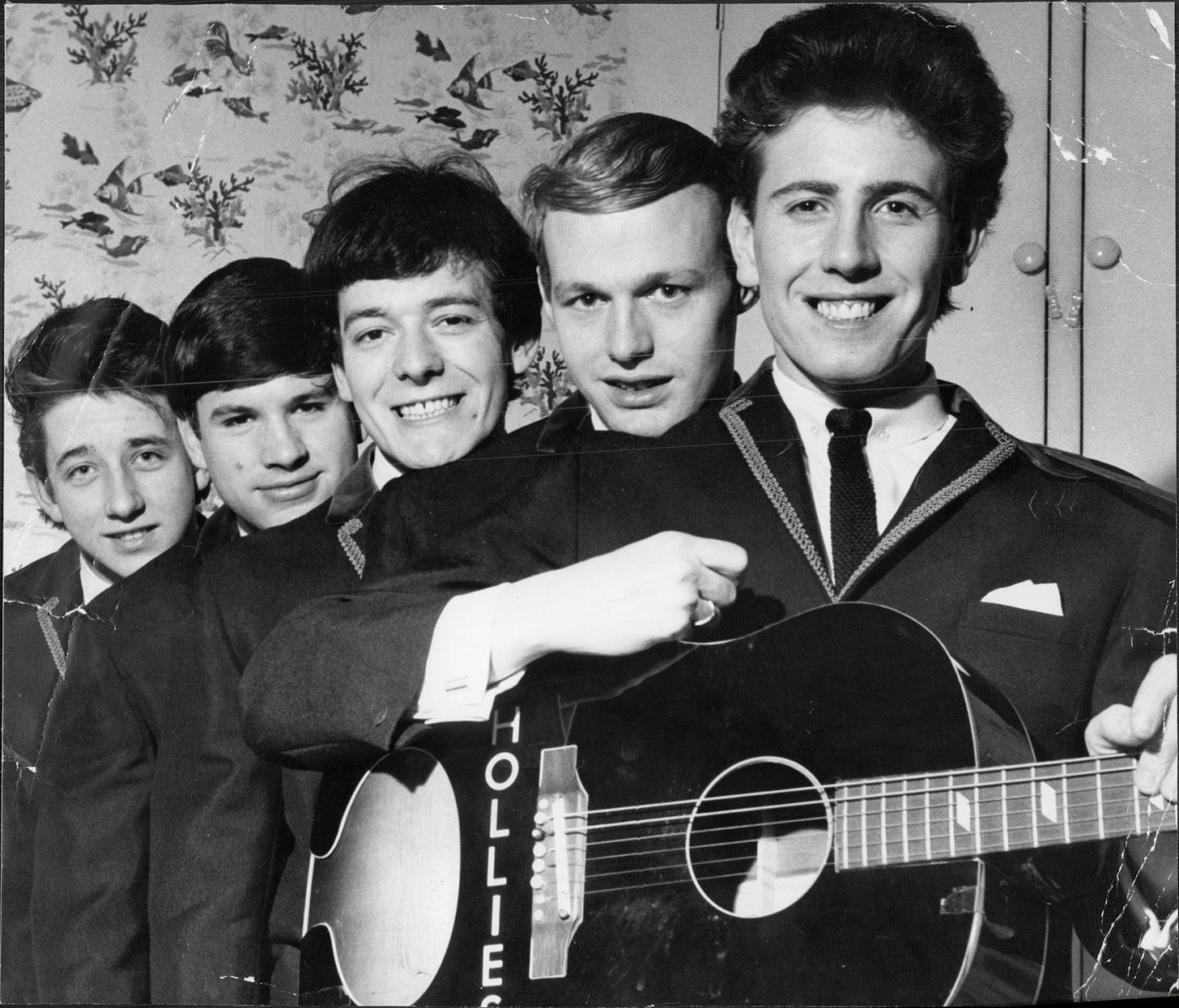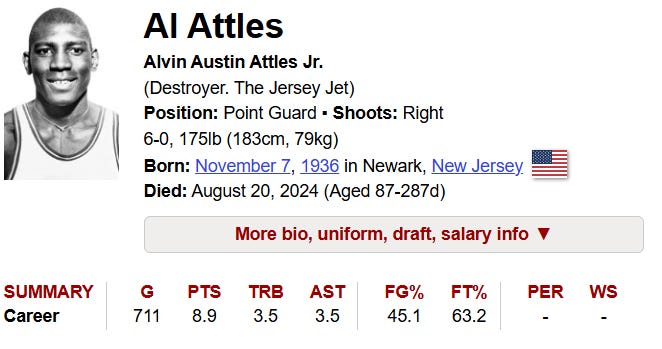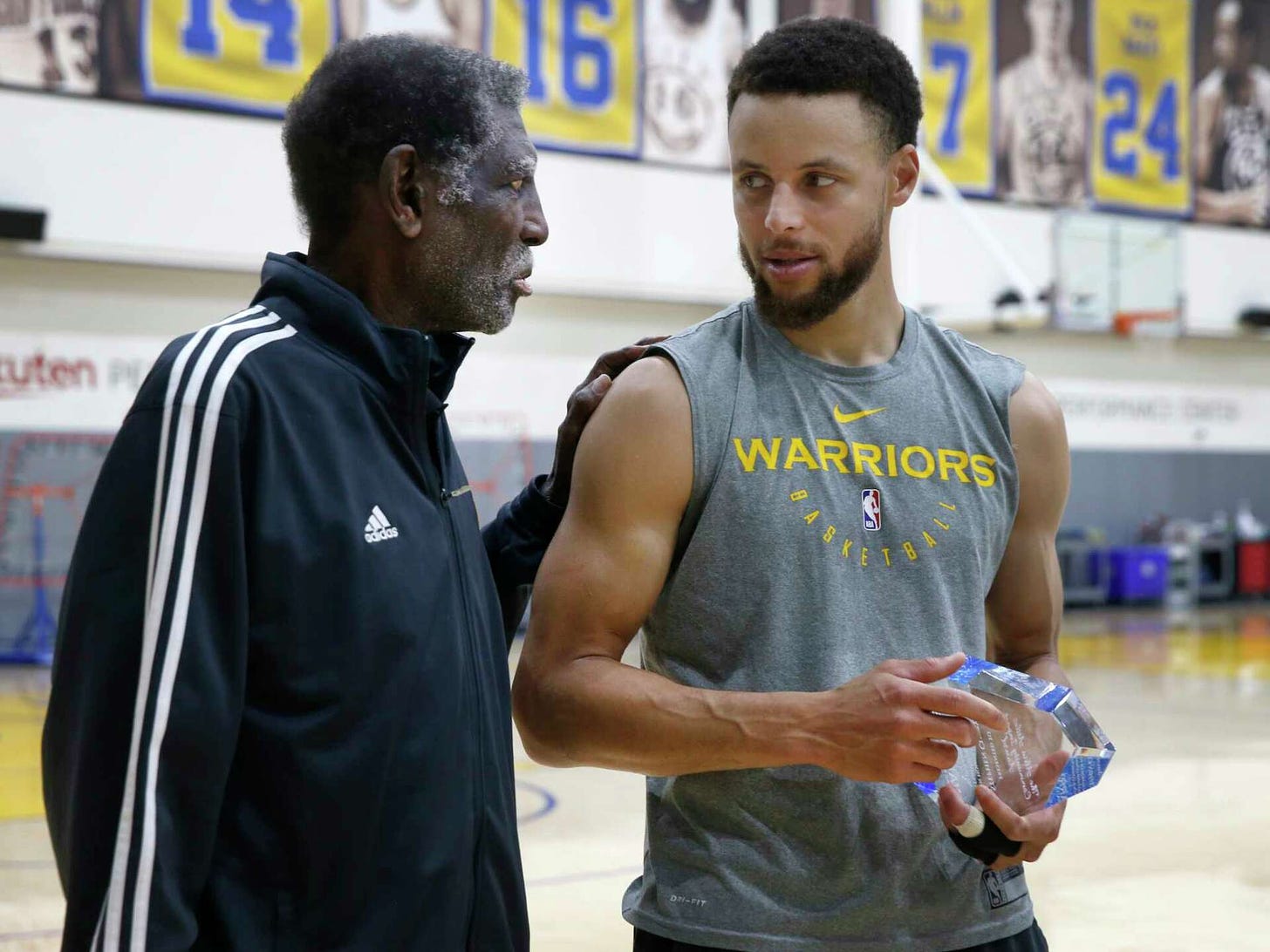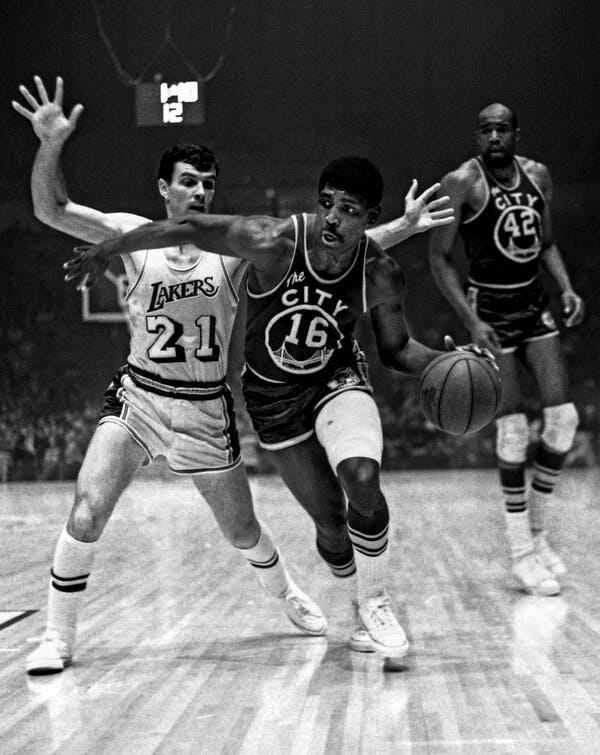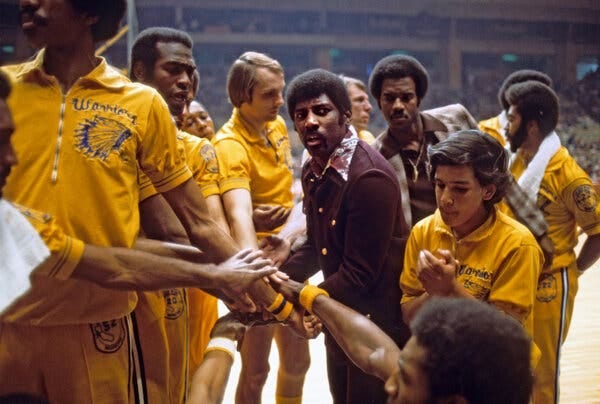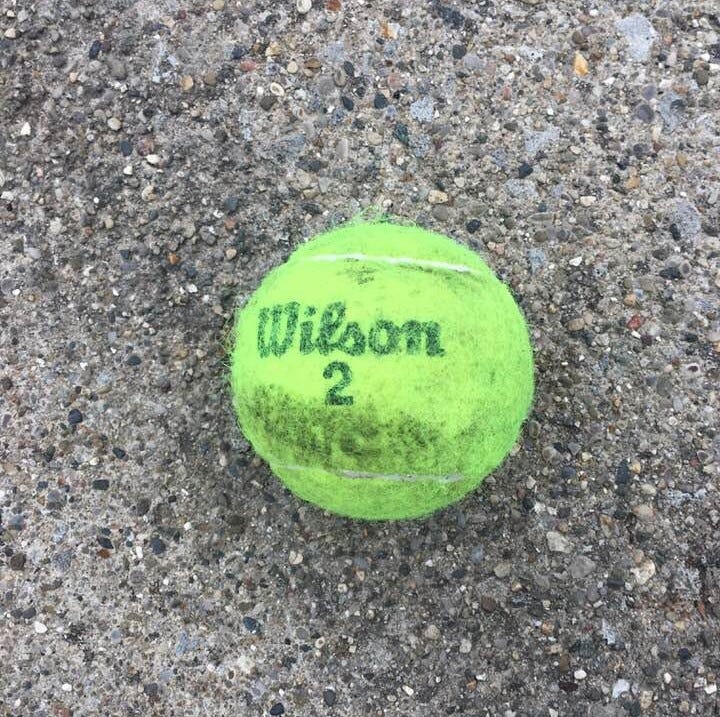Welcome to my weekly newsletter. This week’s issue includes my favorite Hollies songs, an inspiring book about preserving Yiddish books, Cuban inspired street food, Graham Nash’s band before CSN, one of the first Black NBA head coaches, and a bereft ball. I hope you like the picks and pics.
When I arrived at Sonic Lunch on Thursday in time for the opening act at 11:30, I was unprepared for what I encountered. Liberty Plaza was filled with ardent fans of the former Ann Arbor band, Tally Hall, who had been there since 8:00 that morning. Many of them were dressed in white shirts and ties the color of their favorite band members. They stood throughout the opening set, many of them filming it while singing along. They then stood in an endless line for well over an hour to meet Andrew Horowitz and the other musicians who appeared with him. Many of them had flown in from around the country just to attend this 30-minute opening set.
Antwaun Stanley was the headliner, and he has his bandmates put on a soulful show.
Antwaun is a frequent collaborator with Vulfpeck.
If you enjoy Fave Five, please share it with your friends who also like books, food, music, sports, or humor. To do so, just click the button below.
Fave Five 99: Sonic SRO
Yiddish Yungerman (Outwitting History), Casual Cuban (Frita Batidos), British Band (The Hollies), Jersey Jet (Al Attles), and a Casting Castoff.
Fave Five List: Favorite Hollies Songs
This week’s Marvelous Musicians had a lot of great hits. Here are my five faves:
Bus Stop
Pay You Back With Interest
Look Through Any Window
Carrie-Anne
I Can’t Let Go
Book Best Bet
Outwitting History: The Amazing Adventures of a Man Who Rescued a Million Yiddish Books by Aaron Lansky
My sister Joan recommended this book to me. Yiddish was the primary language of our grandparents, Julius and Rebecca Garfield, who also spoke English and a bit of Russian. This is a fascinating memoir of the man who worked diligently over many years to salvage, preserve, and share Yiddish culture and literature.
In my work as a knowledge management author, I spend a lot of time retrieving articles from the Internet Archive and reusing them to preserve their content. This story is quite relatable for me, as both Aaron and I have worked to rescue knowledge that would otherwise have been lost and have promoted its availability so that others can benefit.
From Amazon: In 1980, a twenty-three-year-old student named Aaron Lansky set out to rescue the world’s abandoned Yiddish books before it was too late. Twenty-five years and one and a half million books later, he’s still in the midst of a great adventure. Filled with poignant and often laugh-out-loud tales from Lansky’s travels across the country as he collected books from older Jewish immigrants—books their own children had no use for—Outwitting History also explores brilliant Yiddish writers and enables us to see how an almost-lost culture is the bridge between the Old World and the future.
From Wikipedia: Aaron Lansky (born June 17, 1955, in New Bedford, Massachusetts) is the founder of the Yiddish Book Center, an organization he created to help salvage Yiddish language publications. He received a MacArthur Fellowship in 1989 for his work.
To borrow from Sholem Aleichem, I have frishe nayes—fresh news—to share with you. On June 17, 2025, on my 70th birthday, I will retire as president of the Yiddish Book Center. I wanted to let you and other friends know directly why I’ve come to this decision, who will succeed me, what I plan to do next, and what you can do to make sure the Center’s work continues long into the future.
It’s hard to believe almost 45 years have passed since I took what I thought would be a two-year leave of absence from graduate school to save Yiddish books. At the time, scholars estimated just 70,000 volumes could still be found; we collected that number in six months and went on to recover 1.5 million. Over the years you helped us establish Yiddish collections at major libraries and place our titles online, where they’ve been downloaded five million times. You helped us find new ways to translate Yiddish books and bring them to English readers. We revolutionized Yiddish-language learning with a new, state-of-the-art textbook. We filmed thousands of hours of oral histories and produced podcasts, radio programs, an English-language magazine, and groundbreaking exhibitions. We launched Yidstock: The Festival of New Yiddish Music. And we introduced lively educational programs to bring Jewish history, literature, and culture to students of all ages. Along the way we also built our own “shtetl”: two connected, architecturally distinctive buildings that are welcoming, sunny, and full of life. Thanks to you and other loyal supporters we did all this with a balanced budget and not a penny of debt.
Why would I want to retire now, when we’ve come so far and accomplished so much? The answer is because we have accomplished so much. Running the Center is the only job I’ve had since graduating college. For years I worked twelve hours a day, six days a week. I hoisted so many boxes of books onto my shoulder I required surgery to repair the damage. Although my devotion to the Yiddish Book Center remains undiminished, I can no longer lay claim to the extravagant energy of my younger years, when Yiddish speakers used to refer to me as “der yungerman,” the young man. Ecclesiastes teaches, “Lakol eys ulakol zman—To everything there is a season.” As proud as I am of what we’ve achieved, I recognize that the time has come to pass the torch to new leaders with vision, talent, and dreams of their own.
Our board’s succession committee has been quietly preparing for this moment for a long time, and I think you’ll be pleased to learn that my successor will be our executive director, Susan Bronson. Susan and I have worked closely together for 14 years, and she’s played a pivotal role in bringing the Center to where we are today. With a PhD in history and years of experience, she is a natural leader: strong, strategic, collaborative, and resourceful. She’s well-liked by our staff and widely respected in the Jewish world, where she served as chair of the Council of American Jewish Museums. She has a gift for forging strategic partnerships, and she’s eager to expand the Center’s work to younger constituents. Best of all, she already knows the Yiddish Book Center inside and out. I share our board’s confidence that she’ll bring a steady hand and new inspiration to what is already an uncommonly sound and successful organization.
As for me, I won’t be leaving the Center completely. Instead, I’ve agreed to stay on for two more years after I retire as president in the part-time role of senior advisor. My plan is to assume special assignments and, when possible, to resume teaching, writing, and other intellectual pursuits that I had to put on hold while building the Center.
As you know, the Yiddish Book Center has never stood still, and we’re not about to start now. During my remaining time as president, I promise to do everything in my power to make sure the organization we built, the books we saved, and the culture we reclaimed will endure. My to-do list for the next sixteen months is an ambitious one. I want to expand our educational programs, to translate more Yiddish books into English, and to roll out the Universal Yiddish Library: our plan to pool our digitized holdings with those of other major libraries and make Yiddish, once in danger of extinction, the most accessible literature on Earth. I’m also looking forward to traveling with Susan to visit with members and tell you more about our exciting plans for the years ahead, and to lay the groundwork for a campaign to increase our endowment to $100 million before our 50th anniversary in 2030.
All that, however, still lies ahead. For now, what I want to say as I approach my retirement as president is thank you! You’ve helped the Yiddish Book Center survive, thrive, and keep Yiddish alive for more than four decades, and I’m confident you’ll continue to stand by us in the months and years ahead.
Mit a hartsikn dank—With heartfelt gratitude,
Aaron Lansky
President
Aaron Lansky, of the Yiddish Book Center, Will Retire as President by Joseph Berger of The New York Times
He Rescued 1.5 Million Yiddish Books. Now He Will Have Time to Read Some.
Aaron Lansky spent a lifetime building the Yiddish Book Center, one of the country’s leading Jewish cultural institutions. He’s ready to hand over the reins.
Restaurant Recommendation
Frita Batidos 117 W. Washington St, Ann Arbor, MI 48104
After Sonic Lunch on Thursday, I stopped by here and joined the line to place my order. It’s a very popular spot, and with good reason.
Inspired Cuban: lemongrass roast pork. thick-cut bacon, tasso ham, Comté, cornichons & chipotle mayo on Cuban bread
Coconut-Lime Tropical Soda
From the restaurant: FRITA BATIDOS is inspired by Cuban culture and a fantasy revolving around two staples in the world of Cuban street food – The FRITA – a burger traditionally made from spicy chorizo served with shoestring fries on top in a soft egg bun and BATIDOS – tropical milkshakes made with fresh fruit, crushed ice, and sweetened milk – with or without rum! Like burgers and shakes, Fritas and Batidos are a natural pairing, and the whimsical menu is the result of dreaming about these two dishes for years! Frita Batidos is chef-driven, following the tenets of the Slow Food Movement with almost everything being made in our kitchen, from scratch and inspired by the time I spent visiting Miami throughout my childhood.
CUBAN? NO, I am not Cuban – and this is not a Traditional Cuban restaurant. I grew up spending a lot of time visiting my grandmother in Miami, and the Cuban and more broadly Latino cultures became a major influence in my style of cooking. My love for the ingredients, culinary traditions and spirit of the culture grew as I spent years working alongside people from these communities. I was excited by the melting pot aspect of Cuban culture and cuisine with significant migrant communities including Chinese, Spanish, Creole and so… while the starting point may be Cuban, the style of the menu is all its own!
OUR menu follows the seasons and many of the key ingredients are sourced from local farmers and purveyors. This is an ongoing quest and something personally meaningful to us, so if you have a favorite local, humane farm or purveyor, please point us in their direction – It will be greatly appreciated!
Frita Batidos is the juxtaposition of Eve’s two greatest passions – The desire to create something truly special through the merging of the highest standards and attention to detail with the warmth and conviviality of feeding the people you love. Eve dreamt of creating something truly special grounded in her core beliefs – Making food from scratch, following the seasons and supporting local farmers, purveyors and community – and bringing these elements together to create something with her unique fingerprint and uniquely its own in Frita Batidos.
Frita Batidos is a community. We thank you – friends, family, partners, extended restaurant family and voracious culinary community – for helping bring to fruition what started as a daydream, grew into an obsession and is finally a reality!
Marvelous Musicians
We saw Graham Nash perform on Wednesday, which prompted me to write about his first successful band when he lived in England in the 1960s.
I first heard The Hollies in 1967 when "Carrie Anne" reached Number 9 in the U.S. I saw a cutout of the LP Stop! Stop! Stop! at Woolworth's and decided to buy it for 99 cents. I loved "Pay You Back With Interest" and subsequently bought four more of their LPs: Bus Stop; Words and Music by Bob Dylan; He Ain't Heavy, He's My Brother; and The Hollies' Greatest Hits. I love their sound.
From Wikipedia: The Hollies are a British rock and pop band, formed in 1962. One of the leading British groups of the 1960s and into the mid-1970s, they are known for their distinctive three-part vocal harmony style. Allan Clarke and Graham Nash founded the band as a Merseybeat-type group in Manchester, although some of the band members came from towns further north in East Lancashire. Nash left the group in 1968 to form Crosby, Stills & Nash, though he has reunited with the Hollies on occasion.
They enjoyed considerable popularity in the UK and Europe during the mid-1960s with a string of hit singles that included "Just One Look" (1964), "Here I Go Again" (1964), "I'm Alive" (1965; their first of two UK number-ones), "Look Through Any Window" (1965) and "I Can't Let Go" (1966), although they did not achieve US chart success until "Bus Stop" was released in 1966. The group went on to have periodic success on both sides of the Atlantic over the next decade with hits such as "Stop Stop Stop" (1966), "On a Carousel" (1967), "Carrie Anne" (1967), "He Ain't Heavy, He's My Brother" (1969), "Long Cool Woman in a Black Dress" (1972) and "The Air That I Breathe" (1974). "He Ain't Heavy" reached number one on the UK Singles Chart following a 1988 re-release. Overall, the Hollies had over 30 charting singles on the UK Singles Chart, 22 on the Billboard Hot 100, and 21 in Canada.
The Hollies are one of the few UK groups of the early 1960s, along with the Rolling Stones, who have never disbanded and continue to record and perform. In recognition of their achievements, the Hollies were inducted into the Rock and Roll Hall of Fame in 2010.
The Hollies originated as a duo formed by Allan Clarke and Graham Nash, who were best friends from primary school and began performing together during the skiffle craze of the late 1950s. Eventually Clarke and Nash became a vocal and guitar duo modelled on American duo the Everly Brothers under the names "Ricky and Dane Young". Under this name, they teamed up with a local band, the Fourtones, consisting of Pete Bocking on guitar, John 'Butch' Mepham on bass, Keith Bates on drums, and Derek Quinn on guitar. When Quinn quit to join Freddie and the Dreamers in 1962, Clarke and Nash also quit and joined another Manchester band, the Deltas, consisting of Vic Steele on lead guitar, Eric Haydock on bass guitar, and Don Rathbone on drums, which had just lost two members including Eric Stewart, who left to join a "professional" band, the Mindbenders.
The Deltas first called themselves The Hollies for a December 1962 gig at the Oasis Club in Manchester. It has been suggested that Eric Haydock named the group in relation to a Christmas holly garland, though in a 2009 interview Graham Nash said that the group decided just prior to a performance to call themselves The Hollies because of their admiration for Buddy Holly. In 2009, Nash wrote, "We called ourselves The Hollies, after Buddy and Christmas."
Bus Stop
Pay You Back With Interest
Tell Me To My Face
On A Carousel
He Ain’t Heavy, He’s My Brother
My Playlist
Sports Star
Al died on Tuesday. He was a successful NBA player, coach, and general manager.
From Wikipedia: Alvin Austin Attles Jr. (November 7, 1936 – August 20, 2024) was an American professional basketball player, coach, and executive who spent his entire career with the Golden State Warriors of the National Basketball Association (NBA). Nicknamed the "Destroyer", he played the point guard position. Attles was selected by the Warriors in the 1960 NBA draft and played 11 seasons with the team, including moving with the team from Philadelphia to the San Francisco Bay Area in 1962. He took over as player-coach during the 1970–71 season, his last as a player. He remained the team's head coach after his playing retirement and led the Warriors to an NBA championship in 1975. He stepped down as head coach in 1983 and then served as general manager for the Warriors from 1983 to 1986. Attles was employed by the Warriors for the rest of his life, serving in roles including team ambassador and community relations representative.
Attles's number 16 was retired by the Warriors in 1977. He was inducted into the Naismith Memorial Basketball Hall of Fame in 2019.
Al Attles, a Golden State Warrior in Name and in Spirit, Dies at 87 by Richard Goldstein of The New York Times
Al Attles, a Basketball Hall of Fame guard who was among the most prominent figures in the history of the Golden State Warriors and their forerunner franchise in Philadelphia, died on Tuesday at his home in Oakland, Calif. He was 87.
Attles, the future Hall of Fame guard Lenny Wilkens once told Sports Illustrated, “wasn’t dirty, but he was on you like a glove all the time.”
Attles averaged only 8.9 points a game in his career. What didn’t show up in the box score was his defensive prowess.
He was part of the supporting cast when Chamberlain scored 100 points against the Knicks in a game in Hershey, Pa., on March 2, 1962. Attles had a perfect night from the field — not that anyone noticed — hitting all eight of his shots and a free throw, and fed Chamberlain for six of his 36 baskets.
He coached the Warriors to the N.B.A. championship in 1975, when they swept the favored Washington Bullets, coached by K.C. Jones, in four games. It was the first time two Black coaches faced each other in an N.B.A. championship series.
Attles led the Warriors to six playoff appearances in a span of seven years in the 1970s. After 14 seasons as head coach, he served as their general manager from 1983 to 1986, then held a variety of other front-office posts.
Picture Pun
Auditioned for Castaway but was aced out.


